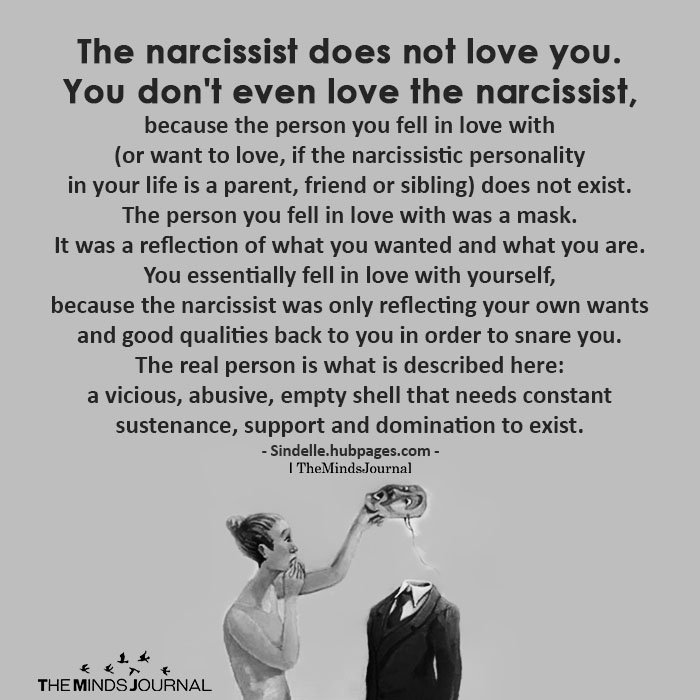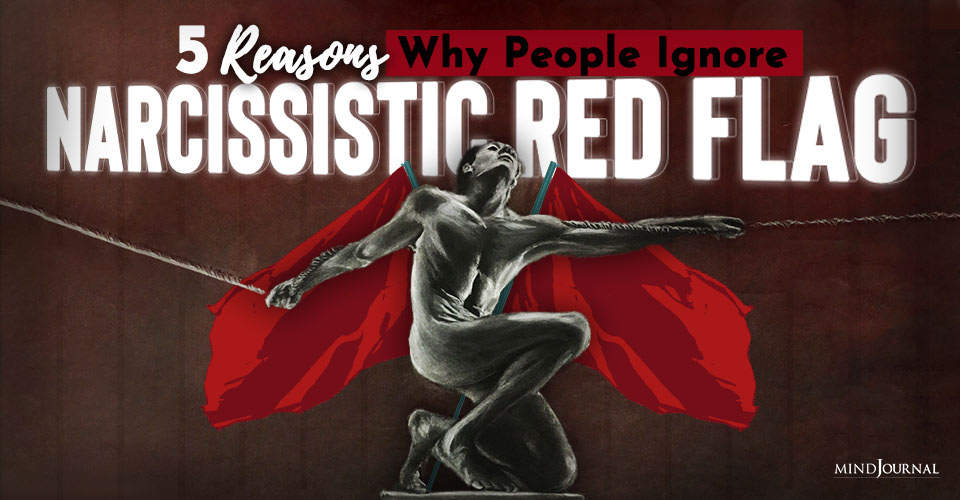Why do so many people ignore narcissistic red flags, even those who know the true nature of narcissists? What is the real, raw truth behind putting up with horrible people like them?
Most of us have subconsciously ignored the red flags of narcissism which is why we’ve ended up here- searching for resources to help us get out. I’ve been there. I now know what the red flags are so that I can be sure to acknowledge them and run away the next time a narcissist comes my way.
Once we are aware of the red flags, we become responsible for what we do with them. Narcissistic relationships all start off with love bombing and so the red flags can seem incredibly subtle and/or easy to ignore once they start to appear.
It’s important to understand why you might ignore red flags so that if god forbid, you are ever in a situation with a narcissist again, you can be in a better place to run when the red flags start popping up.
Related: Rationalizing Manipulation: How Narcissists Take Advantage Of You
Here Are 5 Reasons Why You Might Choose To Ignore The Red Flags Of Narcissism
1. You’re Already In It.
I believe that one of the main reasons why people ignore narcissistic red flags is because they are already deep into the relationship. People often feel like there’s too much to lose or too much at stake if he or she were to exit the relationship.
Someone might have already started to cohabitate with their narcissistic partner. Others might have already had children with them. A business partnership might have formed or joint assets might be in play.
This, I believe, is one of the biggest reasons people ignore narcissistic red flags. The fear of losing one’s security, one’s children, one’s assets can cause a lot of anxiety to even acknowledge.

2. You Hope It’s Just A Fluke.
Another reason or justification for ignoring red flags is the belief or hope that the narcissistic behavior is a fluke or a one-time thing. It can be easier to blame the behavior on difficult times or even on oneself.
One might ask themselves if they are reading things wrong or being paranoid – especially if the narcissistic devaluing has begun and started to work in the narcissist’s favor (you starting to question yourself/your reality/your judgment).
Minimizing the behavior can be much easier at the moment; however, will be fatal in the long run.
Related: Love Bombing As A Narcissistic Attachment Style
3. Love Bombing
Every narcissistic relationship begins with love bombing. Narcissists love bomb their targets specifically so their other negative behaviors are more readily ignored. It’s easy to remember the love bombing and all of the outrageously kind and wonderful things they did and said. People may ignore the red flags to hold on to these often fleeting moments that consist of love bombing.
They may seem so wonderful in every way except for the ways in which they devalue you. It might be subconsciously worth it to the narcissist’s victim to endure the devaluing so that he or she can receive the love bombing. If this is you, remember what love bombing is and that it will only decrease in frequency over time.
4. You Are An Empath.
Another huge reason as to why people ignore narcissistic red flags is because of his or her empathy for the narcissist. The narcissist may have revealed to their partner about their traumatic childhood or other things that place them in the role of a victim. This can make empaths willing to ignore red flags so that they can love the narcissist back to help, support them, or be there for them in any way.
If you are an empath it’s important to remember that you can only help others if you prioritize you first.
Related: The Empath and The Narcissist: The Brutal Reality Of Their Toxic Relationship
5. It’s Comfortable.
Another reason people might ignore the red flags is because of the level of comfort that being in a toxic relationship brings to him or her. Even if they know that the relationship is toxic, it might be normal for them. It’s sort of like putting on an old pair of sneakers. They’re comfortable, but they’re not the greatest.
Written By Rebecca Zung Originally Appeared On Rebecca Zung











Leave a Reply